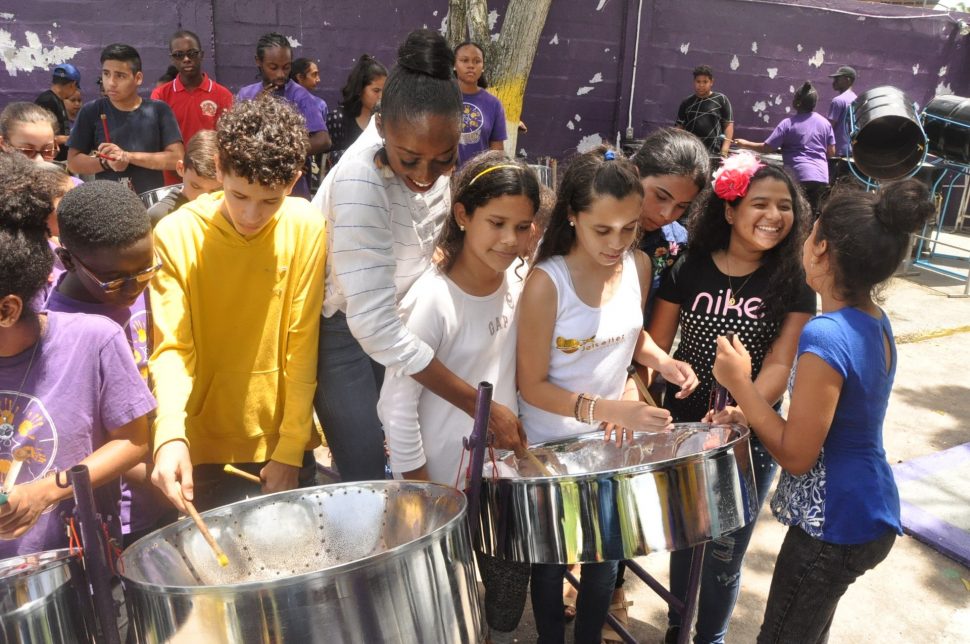(Trinidad Guardian) Fleeing a country riddled with political and economic instability, most Venezuelan migrant children have had to grow up before their time.
One Non-Governmental Organisation (NGO), the La Romain Migrant Support (LARMS), together with Miss T&T World Tya Janè Ramey and the Golden Hands music institute are trying to mitigate the effects of the painful transition from Venezuela to T&T and are hoping their efforts will assist in integrating the children into society.
The group have started a pan-training camp for 15 Venezuelan children at Golden Hands in San Fernando and Ramey spoke to Guardian Media about the project yesterday.
“This is the first session of Project Esperanza, where we have interaction between the children of the LARMS group and Trinidadian children allowing them to assimilate and acculturate into T&T,” Ramey said.
“I believe that our culture provides that space to do both—our music, our pan is beautiful, our agriculture and these are some of the ways that we are going to be using to mend and see togetherness and unity with migrant children and T&T.”
Ramey, who heads off to London in December to compete in the annual Miss World pageant, said this project is the basis for her “Beauty with a Purpose” element of the pageant.
She said although many Trinidadians still have reservations about accepting Venezuelans, the country needs to come together to nurture the migrant children.
“My slogan says “Project Esperanza: Building bridges not walls.” I really grew up nurtured by a community and I see all the benefits, all the elements my community of Five Rivers brought—my involvement in Best Village, my involvement in philanthropy—it all helped to frame the person I am today and it was only natural to help these people who are only a few miles away to help them in this entire traumatic transition that they are in.”
She wants locals to look past the differences in culture and language and accept Venezuelans.
For Franka Hills-Headley, the owner and manager of Golden Hands, this project is one close to her heart.
She too called for acceptance and better treatment of migrants saying, “We have to understand it is a two-sided coin, sure we may feel strange to see so many strange people here but imagine how they feel to be somewhere completely new, how strange they must feel. At the end of the day, we must all keep in mind: people are people. Forget everything else.”
LARMS co-ordinator Angie Ramnarine said the project was part of the organisation’s curriculum for migrant children with an interest in music. She said the children were elated at having the opportunity and had fallen in love with the steelpan.

